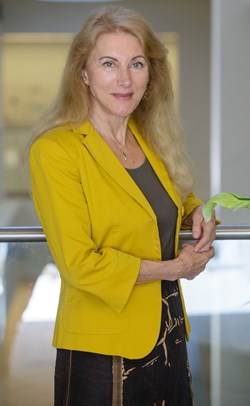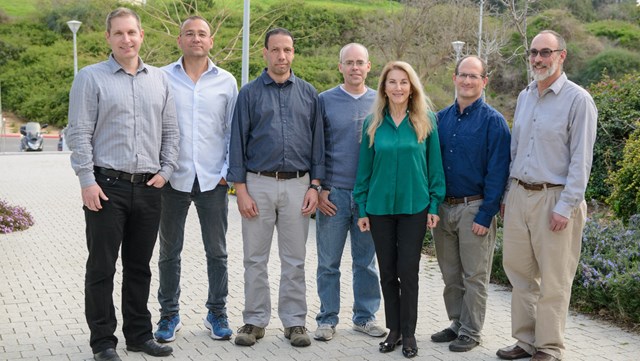
Medical treatment must take into account each patient’s individuality. Image via Shutterstock.com
A new center for personalized medicine in Israel gives advanced detective tools to doctors and researchers
Why is a certain type of cancer more often fatal in obese patients, and another type more fatal in the elderly? Why does a serious eye disease develop in many Bedouin children?
Doctors and researchers in Israel search for answers to medical mysteries like these at the Nancy & Stephen Grand Israel National Center for Personalized Medicine (G-INCPM) at the Weizmann Institute of Science in Rehovot.
G-INCPM began in October 2012 as a small entity with labs spread across the Weizmann campus. In mid-2015 it moved into a newly renovated dedicated building with state-of-the-art equipment.
“As of December 2016, we have worked with 230 scientists and academics from all over Israel and from all the universities, on 900 projects; and with 30 clinicians from Israeli medical centers on 67 projects,” founding director Berta Strulovici tells ISRAEL21c.
Peering into proteins
While personalized medicine is gaining popularity in major centers globally, G-INCPM is unique in that it is not a patient-care facility.
Its mandate is to help professionals find deep insights into the human body that can help tailor disease prevention and treatment for each patient’s circumstances.
Those insights can be obtained by studying genes in the DNA of a particular tissue or cell. Once a gene is activated, the information it holds is used for making the protein for which it codes. Many diseases result from genes that are improperly turned on or off, so that key proteins don’t function properly or are missing altogether.
Genetic and proteomic analysis ordinarily takes a long time and necessitates multiple sophisticated labs and samplings.

Dr. Berta Strulovici, founding director of the Grand-Israel National Center for Personalized Medicine at the Weizmann Institute of Science. Photo: courtesy
To streamline the process, G-INCPM pools the expertise of 43 specialists in genomics, bioinformatics, protein profiling, drug discovery and information technology (IT). This rare team approach produces more insights, more quickly, from a single sample.
“Here we can do it all at the same time,” says Strulovici. “As far as I am aware, no other institution has all these disciplines physically and administratively co-located — which is essential for innovation, cross-talk, more effective data integration, and tightening the timeline from the bench to the bedside.”
Strulovici earned her doctorate at Weizmann in 1982 and worked for 30 years in the United States, most recently as vice president of basic research at Merck Worldwide and as founding CTO of biotech startup iPierian in the San Francisco Bay Area. She returned to Israel in April 2012 to begin funding, staffing and equipping the center.
Three case studies
G-INCPM’s investigation into acute myeloid leukemia involves Assuta Hospital in Tel Aviv and an Israeli physician scientist eager to discover why children who get this disease usually survive, whereas only 5 percent of elderly people with acute myeloid leukemia survive.

Dr. Berta Strulovici and her team at the Grand-Israel National Center for Personalized Medicine at the Weizmann Institute of Science. Photo: courtesy
B blood cell samples from 40 elderly patients were screened for differences in how they respond to certain agents. “If we find a patient who responds well to the treatment we’ll perform proteomic and genomic analysis,” says Strulovici.
A project involving soft-tissue sarcoma was initiated by a Tel Aviv Sourasky Medical Center clinician who noticed that obese people with this rare cancer have a worse outcome.
“Our proteomics specialists worked with him to assess if the fat cells adjacent to the tumor may secrete some compound or compounds — or the other way around — and may influence each other in a negative way. We found a set of 800 proteins, of which 230 were secreted by the cells. Many were associated with tumor proliferation and metastasis,” says Strulovici.
If these preliminary data are validated in a larger patient cohort, a biomarker could be developed to identify if someone is more likely to get the disease and if a worse outcome can be expected.
Another collaboration began with a Ben-Gurion University geneticist trying to understand why many Bedouin children of blood-related parents develop retinitis pigmentosa, an inherited degenerative eye disease. Bioinformatics analysis revealed a certain gene that is mutated in two locations, either of which increases risk of the disease.
Pfizer collaboration
To collect, analyze and store the massive data produced through research, G-INCPM’s information technologists worked with IBM Global Technology Services and Schneider Electric to design and build Israel’s first prefabricated modular data center.
Last June, the Weizmann Institute and its commercial arm, Yeda Research and Development, announced a multi-year collaboration between pharma giant Pfizer and G-INCPM’s Institute for Medicinal Chemistry. A Pfizer visiting scientist is working with the Israelis on target selection and screening, looking for R&D projects of mutual interest.
G-INCPM experts also create novel research tools and methods that are being shared with the entire Israeli biomedical community and beyond via a Portal.
For more information, click here.
